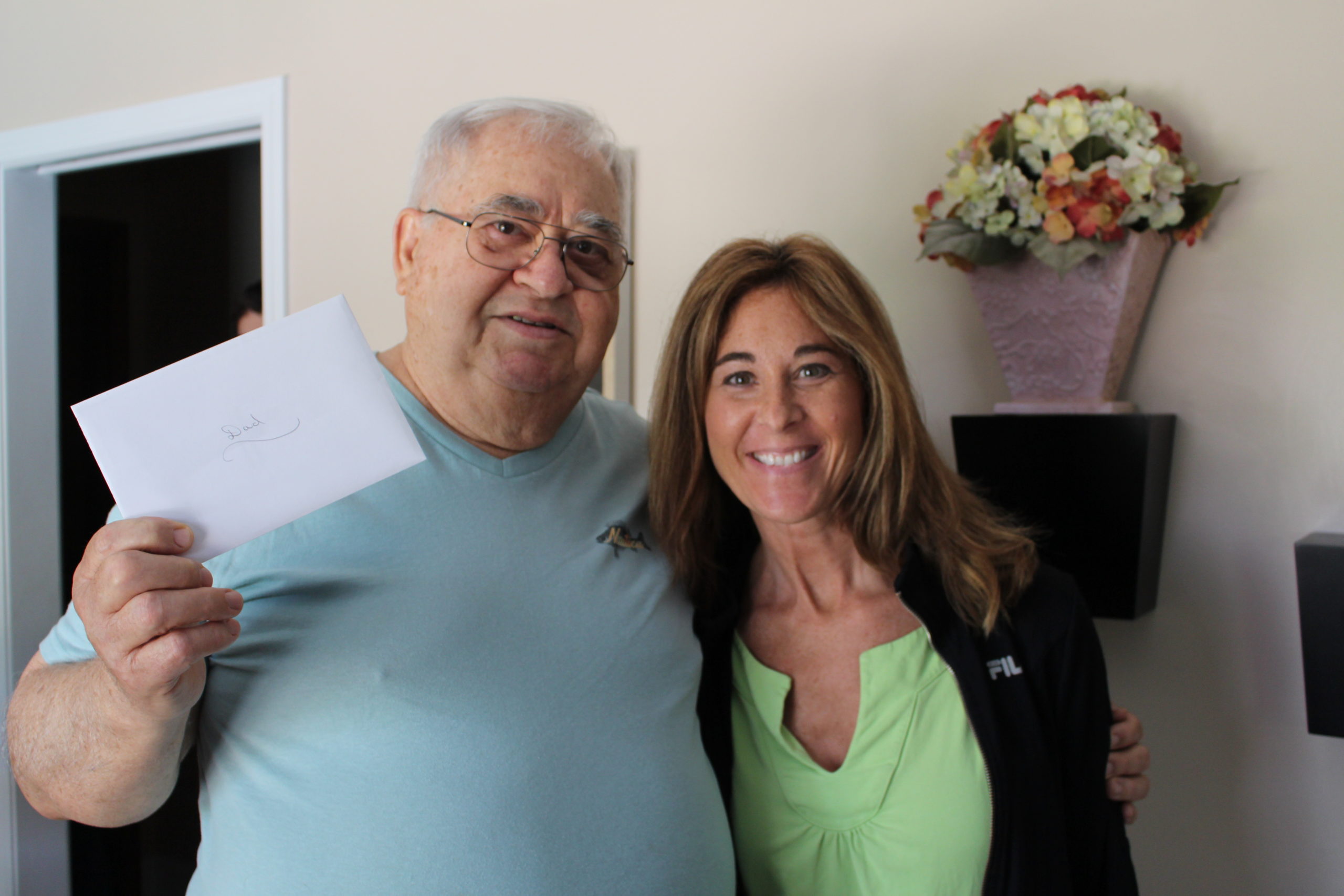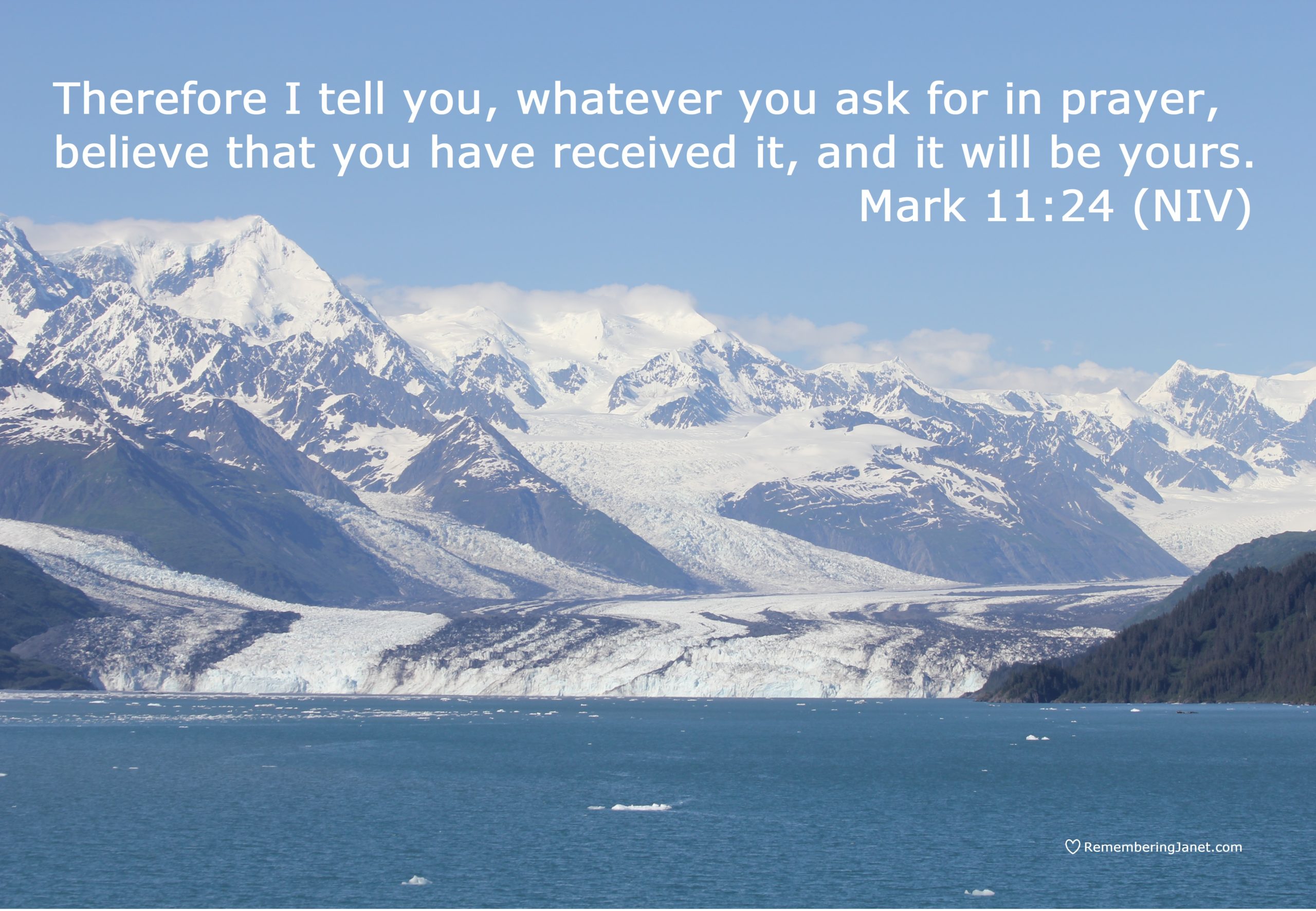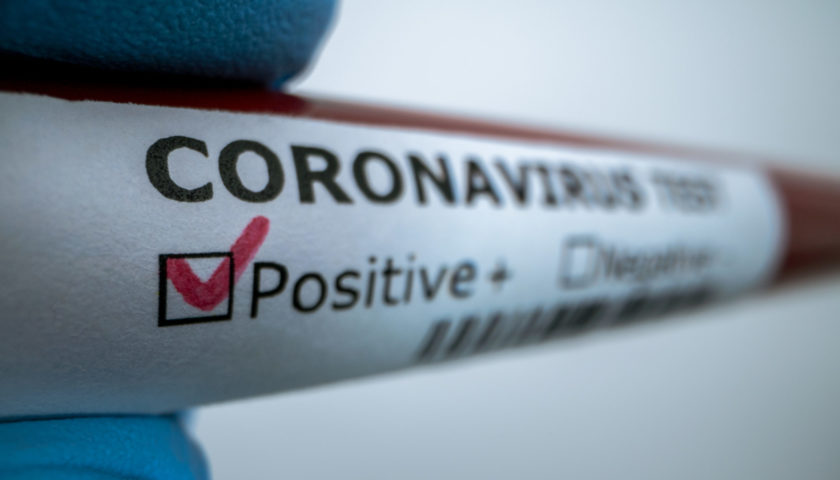COVID-19 positive, Dad’s been lying in a hospital bed for nearly three weeks and fighting for his life. I’m not allowed to see him. Visitors aren’t allowed whatsoever into the hospital, even if their loved one is dying. I won’t accept that Dad falls into that category, but I hear his suffering in moments when a nurse props a phone to his ear so he and I can talk. I want to be in the room to comfort him. On the day Dad becomes too weak to speak any longer, I ask Jesus to sit beside him and hold his hand, because I cannot.
Updates from hospital staff are hard to come by. Communicating with frenzied families of the ill devours time and resources which could be better spent in tending to patients. Mom is appointed the official contact person for our family. But my sister-in-law Donna is the one who gathers our group’s questions and saves them for the brief encounters we anxiously await which might help us ascertain whether Dad will make it through another night.
When Donna is finally able to get a doctor or nurse on the line, she immediately adds our family members to a cell phone conference call. Eight of us huddle together even though we’re miles apart. One by one, we lean in close to our receivers and strain to sift the voice of Dad’s caregiver from the background noises coming through our speakerphones. Donna confirms for the rest of us whether we’re speaking with the attending doctor, the kidney or blood specialist, the heart expert, a nurse, or one of the other dedicated healthcare workers who enter Dad’s room only after donning protective mask, shield, gown, and gloves.
Silently, my brothers, sister, our spouses, and Mom pay careful attention and process the bits of information that are offered. Actively, we listen for an opening in the talk where we can quickly insert a question before we lose our hurried moment of contact with someone, anyone please, on the inside.
Every morning for the past nineteen days, I’ve woken with eagerness to hear first-hand about how my dad is doing. Each hour is whittled away by nervous energy. I pace from room to room. I’m desperately waiting for that call. On the days it doesn’t come, I check to make sure the Do Not Disturb feature on my phone isn’t engaged. I don’t want anything to stand in the way of my connecting with hospital staff, whether they call at a decent hour or in the middle of the night. Who sleeps soundly, anymore, anyway?
Weeks earlier, a walk-in closet had become my prayer room—a refuge, where I gave up my concerns to the Lord and He eased my worries. I humbled myself to His will. I knelt, with my forehead pressed to the floor, and wept through fervent prayers for Dad’s spiritual and physical healing.
Dad had never been one to talk about Godly things. Instead, he would entertain us with stories that made us laugh or let us see into his adventurous nature. As a young man, he thought it hilarious to trick his mom into eating a chocolate-covered ant. He enjoyed hunting and fishing and once rescued baby raccoons that went on to torment the buddy he gave them to. Detroit Tigers, Civil War history, mobsters and rum-running, gunslingers, Indian chiefs, antiques, etc., Dad could tell us about all of that as well as offer his views on several conspiracy theories.

But sadly, what I considered the most important detail about his life was hidden to me. I didn’t know if Dad accepted Jesus as his Savior. I prayed for that, along with requests for complete healing and an end in Dad’s suffering. I respectfully accepted that these requests would only be granted if they were in accordance with God’s plan.
My faith was being tested in a way that I had never experienced before. Could I ... would I stand firm in my belief that God was, and is, in charge and willing to heal my dad? I started believing He would.
I was somewhat blind to the severity of Dad’s diagnosis. Being in Florida at the time, I found enjoyment in getting outside daily for exercise. The weather was perfect: 80 degrees, sunny, low humidity. My husband Greg and I went for walks and would cross from one side of the street to the other when oncoming walkers approached. Riding bikes, we’d cut from the sidewalk into the roadway to give the right of way to families out riding with young children. We golfed but couldn’t congregate inside the clubhouse for dinner and drinks afterward. All minor inconveniences in maintaining proper social distancing.
As Dad’s condition declined more each passing day, I struggled over whether I should head north to be near Dad and the rest of our family in Michigan. I reasoned that I wouldn’t be able to see him even if I were there. I couldn’t be with the rest of the family either because of self-isolation guidelines. What difference would it make if I were in one place or another? What help could I offer that couldn’t be managed from where I was?
My sister confided that Mom would feel better if I were there, physically closer. Still, I wavered. Then we got word from Dad’s doctor that Dad was losing the fight. He was receiving 15 liters of oxygen--the max he could get without being ventilated. The next step was either to put him on a ventilator or stop pursuing life-saving measures and see what might happen.
I frantically reached out to other doctors—friends of mine—and grasped for alternatives they may have heard about. “What are other others trying?” Like rapid-fire, I implored further, “What's U-M (University of Michigan) doing for their COVID-19 patients? Are they taking plasma from survivors to give to the ill? We think my nephew and his fiancé may have been infected before testing all began. Can they donate their plasma to Dad? Should we insist on ventilating Dad against his doctor’s advice? Would it buy us time? Are we being selfish in keeping Dad alive? Will he only suffer longer?”
I shared Dad’s test results and prognosis with hope that someone could help me find a way to get Dad through this. The advice was to pray and head home to say goodbye to Dad. Hope was deflating as quickly as Dad’s lungs were filling with gunk. The gravity of the situation hit hard.
Wandering aimlessly from room to room, I came to my prayer room, opened the door, and went inside. I didn’t expect this to be a place where the Holy Spirit would lead me in a face-off with the devil, but it was.
Enough was enough. I was tired of Satan’s lies infiltrating my thoughts. I wanted to put an end to the doubt he was orchestrating in everyone around me.
I had in mind Christ’s strength in responding to the devil’s temptation in the desert:
Again, the devil took him to a very high mountain and showed him all the kingdoms of the world and their splendor. "All this I will give you,” he said, “if you will bow down and worship me.”
Jesus said to him, “Away from me, Satan! For it is written: ‘Worship the Lord your God, and serve him only.’" Matthew 4:8-10 (NIV)
I remembered Christ’s resolve when facing another attempt by Satan to derail God’s plan for our redemption:
Jesus turned and said to Peter, “Get behind me, Satan! You are a stumbling block to me; you do not have in mind the concerns of God, but merely human concerns.” Matthew 16:23 (NIV)
And, I recalled hearing Beth Moore describe how her husband once fended off a shark by invoking the name of Christ. I was armed with all I needed.
I stood firmly on my feet and vehemently ordered Satan to stop his attack. I clenched my teeth and spat, “You have no business with my family. You can’t have my dad. Leave us alone!”
In this surreal war that was testing my belief, I called upon Christ and pronounced, “In the mighty and powerful name of Jesus, I command you to get out!” As the words spewed from me, I whipped my arm to one side and emphatically pointed the way.
Expelling Satan from the closet was one thing, but had he backed off completely?
The next update from the hospital literally sent me packing. Dad’s doctor was insistent we change Dad’s care code to DNR (do not resuscitate) and place him in palliative care. “Let him be in the Lord’s hands,” the doctor had said. I heard kindness in his voice and understood his intentions were good, but I stubbornly thought to myself, “He has been this whole time.”
Overwhelmed with emotion, I had trouble focusing. I was worn out to a point that I had to touch every article of clothing in my closet and in my dresser drawers as I considered whether I might need it for the indefinitely long stay up north.
When I brushed my hand over the dress I’ve worn to funerals, I paused and wrestled most over whether I would need this particular item. Tears poured from my eyes as I weighed the options.
No. I lowered my arm by my side.
Maybe. I reached out.
Just in case. I compromised, moving my hand closer.
Finally, trusting that God would answer my prayers by healing my dad, I pushed uncertainty aside and firmly asserted, “No! I won’t have to wear this dress.” And I moved on to pack other things.
After twenty-one hours of driving, Greg and I arrived outside my brother’s house and spoke through an open window to the weary bunch holed up inside. My mom, brother, and niece had been exposed to Dad when he was contagious. The three of them were now quarantined together with my sister-in-law, who had courageously chosen to watch over all of them.
Little sleep and days of crying had left us all looking disheveled and haggard. We were grief-stricken and struggling over our decision to follow the doctor’s advice. Dad would not be put on a respirator and he would not be resuscitated if he were to go into cardiac arrest. COVID-19 was aggressively drowning the life out of Dad. Maybe it would be more merciful if he were to go into AFib (atrial fibrillation) again and succumb to a heart attack instead.
Someone began calling funeral homes to find out what the protocol was following death of a Covid-19 patient. The best scenario was that two weeks would have to pass before we could have an open-casket and small service. Mom wanted to see Dad again, even if that dreadful viewing was to be her last.
The family talked about the loneliness of Dad dying without any of us being with him. We had heard news reports of this very thing happening to thousands of people. Most were much younger and healthier than Dad. The outlook was bleak. We wept more but tried to mask our agony when we called Dad, for perhaps the last time, to tell him we loved him. Saying “goodbye” would have scared him too much.
Life versus death. Faith versus folly. Dad was the unprotected quarterback trying not to get sacked. I was coaching from the sidelines doing all I could to keep the team focused on the win. I wasn’t ready to concede. When mom wanted to go to the bank and get dad’s birth certificate from their safety deposit box, I spoke up to tell her, “You’re not going to need it.”
I believed God would heal my dad.
The next morning, my family was nervously huddled again around our phones to hear the nurse’s update. Her voice was soft and seemed so far away. We had to strive to hear her at all, but every one of us zeroed in on the words, “This morning, his oxygen is down to 13 liters, and his lung x-ray shows signs of improvement. His kidney function is better too.”

How was she so calm?! The rest of us couldn't contain our excitement. We cheered in unison so loudly, Dad must have felt the reverberations. Mountains were moving; Dad was improving! His chest x-rays were the first proof of his recovery. This time, Mom cried tears of joy. Her voice quivered when she optimistically said, “I think he’s going to come home.”
Within days, Dad was released to a nursing home to further recuperate but was soon readmitted to the hospital because of severe anemia. Day by day and five pints of blood later, we again weren’t sure which way things would go for him. Our vigil of waiting for phone calls never ceased, and the devil continued toying with us . . . with me.
I had suspected the timing of the next, long-awaited phone call was going to clash with my prayer-time. Somehow, I knew I would have to make a choice between taking that precious call and focusing my attention on God. The set-up reeked of the devil’s handiwork.
Just as I had anticipated, he came rudely barreling in at a sacred moment. My phone rang as I and thirty women in my fellowship group had begun to collectively pray. I tensed for an instant over the conflict that surfaced from within. Then I relaxed and smiled, ever so slightly, at the predictability in the demonic timing and further test against my fortitude.
Having planned for this altercation, I knew what to do. I felt empowered as I made my choice and silenced the call with a quick swipe of my fingers. I closed my eyes, bowed my head, and concentrated on the beautiful prayers flowing from the lips of God’s warriors.
Their faith-filled requests for healing, strength, and protection comforted me. Their wisdom was encouraging. Their intermingled petitions and thanks produced peace and confidence; compassion and power; and love, so much love.
I long to be as eloquent as my friends are in their soulful discussions with Christ. But I learned long ago that in these moments we commune with God, He sees into our hearts. Mine requested a miracle.
Dad will be 84 this August. He has stage 4 kidney disease, anemia, congestive heart failure, gout, and arthritis. He’s survived open heart surgery, had a heart-valve replacement, suffered a stroke, an aortic aneurism, colon cancer, bladder cancer, a burst appendix, peritonitis, and now Covid-19. Day by day, he’s fighting to strengthen weakened muscles and regain his ability to walk so he can come home to us. God willing, it won’t be much longer.
I don’t understand exactly why God healed my dad but took away hundreds of thousands of other people from this earth because of a deathly pestilence. What I do know is that faith drives us to pray and prayer helps us through trials and temptations. It’s in these times that we learn what’s most important to us.
Thank you, all of you throughout the world, who prayed for my Dad. You are my beloved neighbors, family, and friends; my church; my Bible study groups; precious ones in Florida, California, Michigan, Thailand, Chile, and certainly more places than I may ever realize. I love you dearly. But Christ loves you more than anyone else ever can. (Please see below for a special treat.)
- Doing Good Can Smell Pretty Rotten - August 26, 2021
- Stop Doubting and Believe - May 1, 2020
- Annual Report 2018 - June 30, 2019
